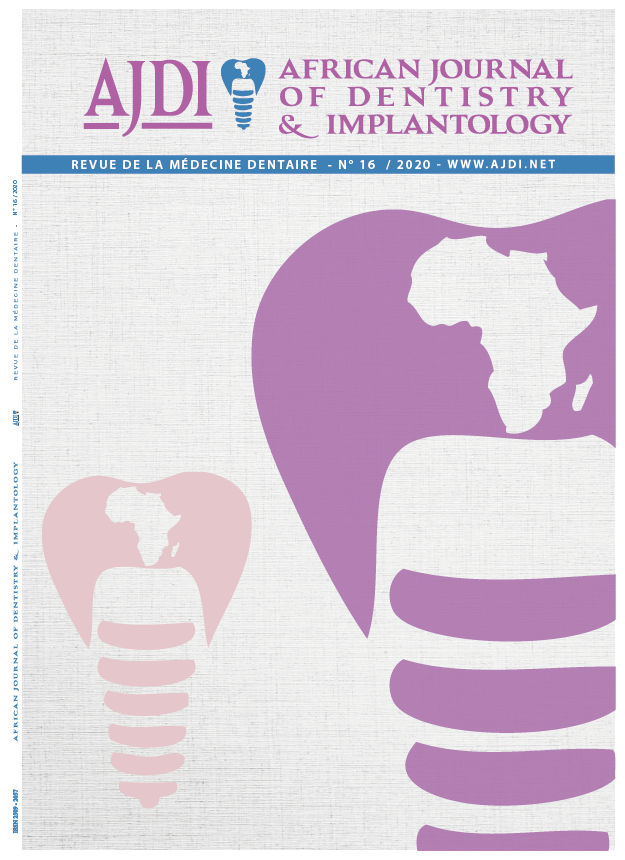
AJDI N°16
ASSESSMENT OF DENTAL IMPLANT SUCCESS IN PATIENTS WITH HISTORY OF PERIODONTITIS: A SYSTEMATIC REVIEW
Guirassy Mouhamadou Lamine , Kane Aboubacar Sidiki Thissé ,Diarra Abdouaziz , Mobio Gnaba Samson , Boussehain Mariam , Benoist Henri Michel
Abstract Download Full ArticleOrofacial-facial congenital malformations in the odonto-stomatology and maxillofacial surgery department of Donka National Hospital
A.T. Bah , A. Bah, O.R Diallo, A. Kourouma
Abstract Download Full ArticleUpdate on mandibular dense bone island in adolescents
Hariri El Mehdi , El Yajouri Hakim , El Mohtarim Bouabid , Chhoul Hakima
Abstract Download Full ArticleMini Dental implants in the stabilization of the Complete Removable Prosthesis
Hassnae Benyahia, Iraqui Omar, Qarfaoui Amina, Merzouk Nadia, Salwa Berrada
Abstract Download Full ArticleLocator® Attachment in implant overdenture: Description and practical employment
Leila Fajri , Anissa AbdelkouI , Zouheir Ismaili , Nadia Merzouk
Abstract Download Full Article